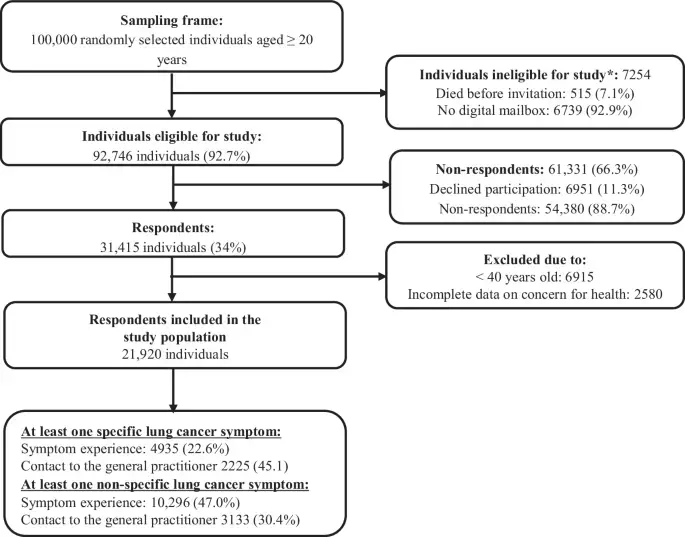
This study explores the relationship between smoking status and the perceived significance of lung cancer symptoms, as well as how this perception influences healthcare-seeking behavior. Conducted among a nationwide sample of Danish adults aged 40 and older, the research reveals that current smokers are more likely to perceive their symptoms as significant but less likely to seek medical help compared to non-smokers. The findings highlight the need for targeted interventions to encourage timely diagnosis and care.
Perception of Symptoms Among Smokers and Non-Smokers
The analysis indicates that individuals who currently smoke are more prone to view their lung cancer symptoms as significant. Despite this heightened awareness, they do not always translate this concern into seeking medical attention. This discrepancy suggests that while smokers recognize the severity of their symptoms, other factors may hinder their decision to consult a healthcare provider. The study also underscores the importance of understanding how different groups interpret and respond to potential signs of lung cancer.
In detail, the study found that current smokers reported higher levels of concern regarding both specific and non-specific lung cancer symptoms compared to those who have never smoked. However, when it came to taking action based on these concerns, there was a notable difference. Smokers tended to delay or avoid seeking medical advice even when experiencing severe symptoms. This behavior could be influenced by various psychological and social barriers, including fear of stigma or self-blame associated with smoking-related diseases. Understanding these underlying reasons can inform better public health strategies aimed at improving early detection rates among high-risk populations.
Healthcare-Seeking Behavior in Relation to Symptom Significance
Individuals who perceived their symptoms as highly significant were more inclined to contact their general practitioner (GP) for both specific and non-specific lung cancer symptoms. However, this association was less pronounced among current smokers, indicating a complex interplay between symptom perception and actual healthcare-seeking behavior. The research emphasizes the need for tailored support systems that address the unique challenges faced by smokers in recognizing and responding to potential lung cancer indicators.
Further investigation revealed that while increased symptom significance generally led to higher chances of GP consultations across all groups, the impact was notably weaker among current smokers. This finding suggests that additional factors beyond symptom awareness influence the decision-making process for this demographic. For instance, smokers might normalize certain symptoms due to their daily experience with smoking-related health issues. Moreover, concerns about receiving a serious diagnosis or facing societal judgment could deter them from seeking timely medical assistance. Addressing these barriers through education and supportive interventions could significantly enhance early detection efforts and ultimately improve outcomes for individuals at risk of developing lung cancer.
